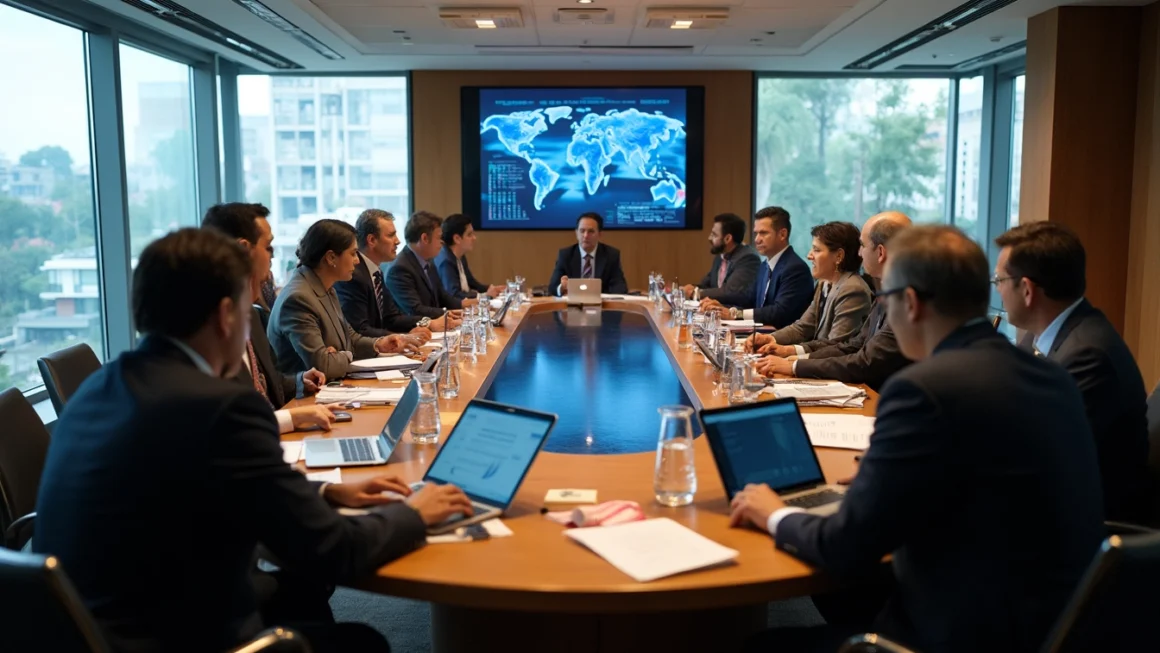Examining Global Financial Tensions Amidst U.S Election Anticipation
Table of Contents
As the globe braces for another pivotal United States election, key financial players around the world are exhibiting palpable nerves. The outcome of the U.S. election not only influences domestic economic policies but also reverberates through international financial markets. This post delves into the financial world’s current anxieties and speculates on what might unfold during this critical period.
Understanding Crisis Among Global Markets
Global financial institutions are on edge, facing uncertainty as they anticipate potential shifts in U.S. political leadership. Historically, election outcomes can significantly alter policy directions, impacting everything from trade agreements to interest rates. This unpredictability ensures that stakeholders are vigilantly monitoring developments, seeking to hedge bets and ensure portfolio stability.
Volatility in Stock Markets
The stock markets are often the first to react to geopolitical events, and U.S. elections are no exception. Investors have their eyes peeled for cues from political candidates regarding economic reforms, tax legislation, and regulatory changes. Any hints or outright declarations can lead to swift market corrections or spurts, demanding a keen attention to real-time policy speeches and debates.
- Monitoring policy announcements for major sectors like tech and healthcare.
- Investment strategies could pivot based on expected regulatory changes.
- Preparing for potential market volatility as results unfold.
The Role of Global Currencies
Currency fluctuations are a core concern for multinational corporations and global investors. The U.S. dollar, a dominant reserve currency, plays a crucial role in global trade. Speculation and resultant shifts in forex rates can greatly impact balance sheets worldwide, leading many to adopt cautious currency strategies until election uncertainties clear.
Hedging Against Currency Risks
Corporations and investors are focused on protecting their positions amidst uncertain currency markets. The utilization of financial instruments to hedge against these risks can mitigate potential losses. Strategic currency hedging is crucial for those who need to safeguard their international revenue streams or manage cross-border transactions.
Global Trade Partnerships at Stake
The outcome of the election may redefine the U.S.’s stance on global trade partnerships. Tariffs, trade balances, and international agreements are pivotal aspects under scrutiny, as shifts in these areas can bolster or hinder global trade flows. International partners are thus anxiously awaiting clarity to assess how best to navigate future trade relations.
Potential Shifts in Tariff Policies
Businesses deeply involved in exports and imports are particularly concerned about potential changes in tariffs. Adjustments in these regulations will necessitate quick responses from businesses to maintain competitiveness in the global market. This uncertainty demands adaptability and foresight from global supply chain managers.
Strategic Adjustments in Investment Portfolios
Considering the swirling uncertainties, global financial firms are re-evaluating their investment strategies. This period of anticipation provides a window to reassess portfolio allocations, focusing on sectors and regions that might benefit from potential political shifts. Diversification remains a key approach to managing risks associated with political and economic changes.
Enhancing Portfolio Diversification
Diversification helps investors mitigate risk by spreading investments across different asset classes and geographic regions. This strategy becomes even more crucial when facing uncertain political landscapes. Analysts are recommending increased scrutiny of market signals and wise allocation to withstand potential post-election economic shifts.
Conclusion: Navigating Uncertainty with Prudence
Uncertainty during pivotal political moments like U.S. elections calls for astute planning and proactive measures from global financial stakeholders. The focus remains on cautious optimism, strategic hedging, and diligent monitoring of emerging political dynamics. For more information on implementing automation solutions in various aspects of business, visit make.com.
As the world stands at the brink of election-driven changes, financial decision-makers must remain vigilant, informed, and prepared to adapt to the evolving landscape.




